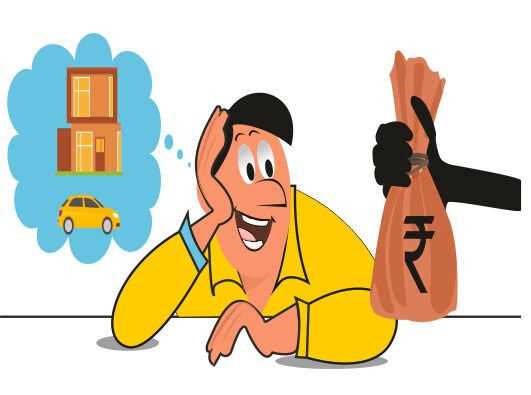Overview:
India is at present witness to a fresh spurt of scams involving several doubtful digital loan applications linked to overseas organizations and operating from China. These apps target the financially unsophisticated, who are given easy and fast access to credit without weighing them down with high interest rates and harsh collection methods. Such cons are not only monetary losses but also the emotional abuse of the person being conned.

How it works: What these perpetrators do is mimic legal and legally recognized financial apps to approve their unlawful loans. Currently, they are using social sites such as Facebook, WhatsApp, and Instagram, among others, to market “instant loans” without any requirement for a credit score or the need for collateral. Once the users are sucked in, they are asked to give their personal information and banking information. These loans are disbursed fast at the time of the first reimbursement, and the amount may vary between a few thousand rupees to several lakhs of rupees.
But this comes with hidden costs as well as very high interest rates. Borrowers do not know the small print which may encompass processing fees that range from 30-40% of the loan or the interest rates which are jacked up as soon as the loan is approved. If they default on the loans they have contracted, they are bullied, and some of the apps even go a notch higher threatening to share the information with friends and family of the borrower.
Tactics and Threats: Many of these apps allow the borrower’s contact list, photos, and other personal information. Whenever the borrower fails or is generally slow on the payment, they are harassed with threatening phone calls and messages and those to other contacts. Some people have noted that they have been threatened with violence, while others have been defamed, through the posting of photos or personal details.
Regulatory Gaps: Still, these scams persist because Indian regulators like the RBI, state police departments, and government organizations continue to remove many offending applications, such as Mobopay, Moneyclick, and Paymoney, from all app stores, notably Google Play, but there lacks adequate legal enforcement in the booming online lending market. The recent emergence of unregulated and foreign-linked lending platforms has therefore posed a major challenge in a complete crackdown.
Conclusion: The current round of loan scams in India explains why loan apps should be regulated more stringently. Consumers should avoid using unlicensed applications and should borrow money only from those establishments that are well-known to the RBI.